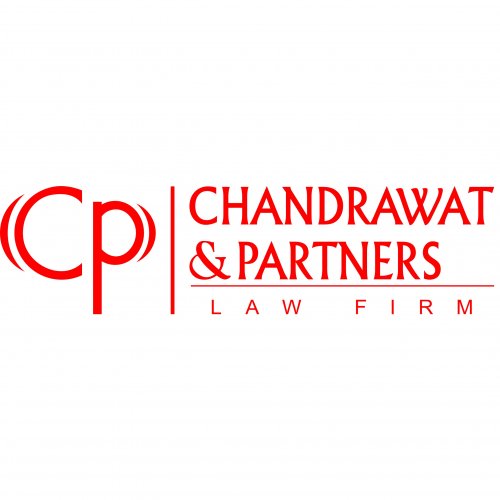Best Nonprofit & Charitable Organizations Lawyers in Indore
Share your needs with us, get contacted by law firms.
Free. Takes 2 min.
List of the best lawyers in Indore, India
About Nonprofit & Charitable Organizations Law in Indore, India
Nonprofit and charitable organizations in Indore are an essential component of the region's civil society, striving to address social, cultural, and educational challenges. Legislation in India governing these entities includes both central laws, such as the Indian Trusts Act, 1882, and local regulations specific to the state of Madhya Pradesh. These laws cover the formation, management, and dissolution of nonprofit organizations, ensuring transparency, accountability, and compliance with their stated objectives. Indore, being a key economic hub of Madhya Pradesh, has a burgeoning nonprofit sector focused on various causes including education, healthcare, and community development.
Why You May Need a Lawyer
Engaging a lawyer is essential for handling the complexities of forming, managing, and sustaining a nonprofit organization in Indore. Common situations requiring legal assistance include formulating the organization's constitutional documents, ensuring compliance with statutory requirements, obtaining requisite registrations like 12A and 80G for tax exemptions, and managing disputes related to governance or funding. A lawyer can guide you through audits, liabilities, and the overall legal landscape ensuring that your organization operates smoothly and effectively while adhering to the law.
Local Laws Overview
In Indore, the legal framework for nonprofits is influenced by both the Indian central laws and state-specific regulations. Key aspects include:
- The Indian Trusts Act, 1882: Governs the establishment and management of trusts, a popular form for charitable organizations.
- The Societies Registration Act, 1860: Used by organizations that operate not for profit to register themselves legally.
- The Companies Act, 2013: Under this act, nonprofits can register as a Section 8 Company, allowing them to be recognized with a distinct corporate identity while operating for charitable purposes.
- Local Madhya Pradesh laws provide additional governance frameworks and oversight mechanisms.
- Compliance with the Foreign Contribution (Regulation) Act (FCRA) is necessary for organizations seeking foreign contributions.
Frequently Asked Questions
1. What steps are involved in registering a nonprofit organization in Indore?
Registering a nonprofit involves choosing the right structure (trust, society, or Section 8 company), drafting the necessary legal documents (trust deed, MOA), filing for registration with the appropriate authority, and obtaining tax exemptions.
2. What tax benefits are available for nonprofit organizations in Indore?
Nonprofits can avail of tax exemptions under Sections 12A and 80G of the Income Tax Act, which offer benefits for both the organization and its donors.
3. How can a nonprofit organization receive foreign donations?
To receive foreign donations, an organization must register under the Foreign Contribution (Regulation) Act (FCRA) and comply with its reporting obligations.
4. What is a Section 8 Company?
A Section 8 Company is recognized under the Companies Act, 2013, aimed at promoting commerce, arts, science, research, sports, charity, and similar objectives, without intending for profit.
5. What are the responsibilities of the trustees in a charitable trust?
Trustees are responsible for ensuring the proper administration of the trust, acting in its best interest, managing the assets prudently, and fulfilling the trust's objectives.
6. Can a registered society own property in its name?
Yes, a registered society can own movable and immovable property in its name, which is managed by the elected body of its members.
7. Is annual auditing mandatory for nonprofit organizations?
Yes, nonprofit organizations are generally required to maintain and submit annual accounts and audits to ensure transparency and accountability.
8. What are the key features of a charitable trust deed?
A charitable trust deed usually includes the name of the trust, its objectives, details of trustees, management policies, and methods of amendment or dissolution.
9. How are disputes within a nonprofit organization typically resolved?
Disputes are commonly resolved through mediation, arbitration, or by seeking resolution from the courts, depending on the nature and seriousness of the conflict.
10. Are there any regulations concerning volunteer management and welfare in nonprofit organizations?
While India does not have comprehensive laws specific to volunteer management, nonprofits are expected to adhere to standard practices for ensuring fair treatment, safety, and respect for volunteers' contributions.
Additional Resources
For those seeking more information or assistance regarding nonprofit and charitable organizations in Indore, the following resources may be helpful:
- Registrar of Societies, Indore: Assists with the registration of societies under local law.
- Income Tax Department, Madhya Pradesh: Provides guidance on tax exemptions and compliance for nonprofit organizations.
- Local Bar Association: Can refer experienced lawyers specializing in nonprofit law.
- The Ministry of Corporate Affairs: Source for regulations governing Section 8 Companies.
Next Steps
If you require legal assistance in forming or managing a nonprofit organization in Indore, consider the following steps:
- Research and identify the type of nonprofit entity that best suits your objectives.
- Contact local legal professionals who specialize in nonprofit law to guide you through the registration and compliance process.
- Consult with accountants or financial advisors familiar with nonprofit taxation to ensure compliance with income tax and FCRA regulations.
- Utilize the resources available from government departments and local associations for guidance.
- Stay informed about any changes in local or national laws affecting nonprofit organizations.
Lawzana helps you find the best lawyers and law firms in Indore through a curated and pre-screened list of qualified legal professionals. Our platform offers rankings and detailed profiles of attorneys and law firms, allowing you to compare based on practice areas, including Nonprofit & Charitable Organizations, experience, and client feedback.
Each profile includes a description of the firm's areas of practice, client reviews, team members and partners, year of establishment, spoken languages, office locations, contact information, social media presence, and any published articles or resources. Most firms on our platform speak English and are experienced in both local and international legal matters.
Get a quote from top-rated law firms in Indore, India — quickly, securely, and without unnecessary hassle.
Disclaimer:
The information provided on this page is for general informational purposes only and does not constitute legal advice. While we strive to ensure the accuracy and relevance of the content, legal information may change over time, and interpretations of the law can vary. You should always consult with a qualified legal professional for advice specific to your situation.
We disclaim all liability for actions taken or not taken based on the content of this page. If you believe any information is incorrect or outdated, please contact us, and we will review and update it where appropriate.











